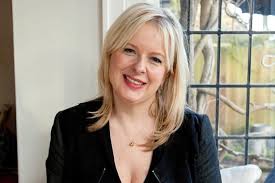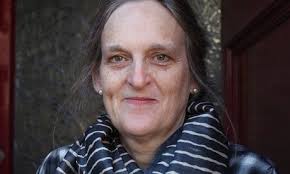Carol Pinchefsky has an article under the title Wizard Oil on the Intergalactic Medicine Show website about the pros and cons of having your book become a movie. She is a freelance writer of technology, games, and geekery for various publications living in New York. Extracted below are some of the key points she makes.
Carol Pinchefsky
“The Lord of the Rings films and the combined Harry Potter films have earned $7.3 billion. Both sets of movies were adapted from books. Royalties from her adaptations have helped make Harry Potter author J.K. Rowling the second richest woman in entertainment, as well as the richest author in history. This number is higher than the gross domestic product of some small countries, including the Bahamas and Mongolia, enough to keep an author in orchid-scented paper and gold-dusted typewriter ribbon for several lifetimes. Most science fiction and fantasy authors are happy to get by on a fraction of that amount.
“Here’s how it works: a producer or production company ‘options’ a book — that is, buys the rights (typically for several thousand dollars) to adapt the book for a period of time (typically from eighteen months to two years). If the producers have not adapted the book when the agreed-upon the period of time lapses, the rights revert back to the author. Few books that are optioned are actually produced; some books get optioned more than once. Although most optioned books languish in “development hell,” with promises of big-name stars dangled in front of the author, only to have the project stymied for years on end, sometimes these promises come to life. . . . For some authors, seeing their books turned into extravagantly funded film is the culmination of a dream. But is having a book adapted a good experience for the author?
“Financially, yes. The option fee is like free money: thousands of dollars for what amounts to almost no extra work. And if the book gets produced, the author receives royalties–even more free money. Plus, books adapted for film or television also get an exposure and recognition that other books do not; curious cinephiles often find their ways to original material of a show they’ve enjoyed. This can catapult an author from a position of moderate success into bestsellerdom.
“But adaptation is not without potential hazards: comically bad acting, stupefying dialog, and a complete and utter lack of understanding of the original book have made their way into the cinema and onto the television…all bearing the name of the author. (This happens with such frequency that fans of a particular book are reluctant to watch adaptations of their favorite books. Even though they would like to share their passion with the world, fans can bitterly resent shoddy or inconsistent portrait. The author has no recourse, except to divorce him/herself from the production. But by then, her/his name has become linked to a disaster. For some, no amount of money can heal a wounded reputation.
“However, several authors can proudly bear witness to successes, where they’ve sat on set, consulted with the director, and even contributed to the script. More important to them, they have seen the characters and the worlds they’ve created come alive. “I went to visit the set, and my characters are there, only everybody else can see them too,” says Jim Butcher, author of the Dresden Files, now a new series on the SciFi channel. Butcher’s joy did not end there. ‘I got to be an extra in one of the shots, I get to be one of Butters’ assistants and morgue guys and I help carry out a coffin.’
“Tanya Huff, author of Vicki Nelson Investigates series, says that not only was she treated well by the producers and asked her opinion on casting decisions, ‘I was so incredibly honoured to be asked to write a script for the show. I’d never written a script…writing for television being very, very different than writing for print.’
“Despite their positive experiences, some authors were not completely unscathed. Although Mike Mignola, author of the Hellboy, was not present during initial talks with producers, he found that part of the process slightly uncomfortable: ‘They’re dissecting and reassembling your child. You don’t want to be in the room for that.’ For Butcher, ‘if anything, the worst thing has been critics. Apparently now that there’s success, the critics feel much more free to whip out the scalpels and go at you to draw blood.’ But those negative experiences pale next to the worst-case scenario that happened to acclaimed author Ursula K. Le Guin. The adaptation of her Earthsea series had only a passing resemblance to her original material, for example, dark-skinned characters were made white. Le Guin disowned the made-for-TV movie. ‘Despite lavish ‘promises’ of consultation, I was entirely excluded from the process. Both films were exploitive, using my books merely for the name and some character names and ideas, but arbitrarily changing and ‘stupidifying’ the story,’ says Le Guin.
“Authors find it flattering to know that people with money care enough about their book to spend months of their lives and millions of dollars on it. But this balm to the ego should not replace common sense. The authors whose books have been adapted have advice:
“Butcher says, ‘Make sure you’re working with an agent you can rely on. Make sure you stay in close contact with your agent. Make sure you read all the contracts, because they say things and you think you know what they mean and you don’t.’
“Le Guin says, “When it comes to the actual contract: If they tell you they love your marvelous book and are going to put it straight onto the screen just as it is, if they promise to send you the screenplay and listen to your reactions to it because they know you are greater than Shakespeare, if they give you a fancy title such as Creative Consultant–even if they give you some money to be Creative Consultant–if they tell you they will consult with you on all important points–don’t believe them…. Mostly the rule for the author is ‘Take the money and run.’ And never look back.’
“Huff says, ‘If the process goes off the rails, as sometimes it does, give your readers credit enough to realize that you had nothing to do with it. And if, as in my case, it’s a wonderfully realized extension of your work, smile and say thank you.’
“Authors with a specific vision as to how their works should be portrayed, and are not willing to compromise, should not allow their books to be filmed–no matter how tempting the financial reward (potentially billions of dollars, but more likely in the tens or perhaps hundreds of thousands). Know yourself. Mignola says, ‘You have to remember film is an entirely different medium…. I think hopefully nobody is so naive that they think their work is going to be preserved as is on screen. And you don’t want them to mess with it, don’t let them have it.’
“But many authors would like to see their books reach a larger audience while concurrently lining their pockets. How does an author get her/his books turned into the next Hollywood blockbuster? In all cases, my interviewees were approached by a production company, rather than contacting a production company themselves. Literary agent Joshua A. Bilmes says this is almost always the case. ‘Just about every project that I have sold to Hollywood has been from somebody finding their own way to a property and wanting it.’
“‘You have to contact someone who has contacts in the film industry. There’s not a lot of forums for unsolicited work to get seen by the film industry,’ says Eli Kirschner, who works for Created By, a management company that specializes in adapting popular books into movies. Kirschner says the best way for an author to get his/her works adapted is ‘getting your books publicized…. If a writer isn’t really well known or doesn’t get an Entertainment Weekly and Publisher’s Weekly review…I’d say that they do kind of have to know someone in the film business.’ Failing that, ‘If an author believes in his work, he can make a trip to LA and get his book in the hands of people who can do something with it,’ says Kirschner.
“Having a novel adapted is an arduous, lengthy process for an author. And for those who create their own universes and tend to work alone, the loss of control can be unsettling.
“But for some authors, the potential rewards outweigh the very real risks. As Huff says, ‘I have had my character, Henry Fitzroy’s, teeth at my throat. It doesn’t get better than that.'”



